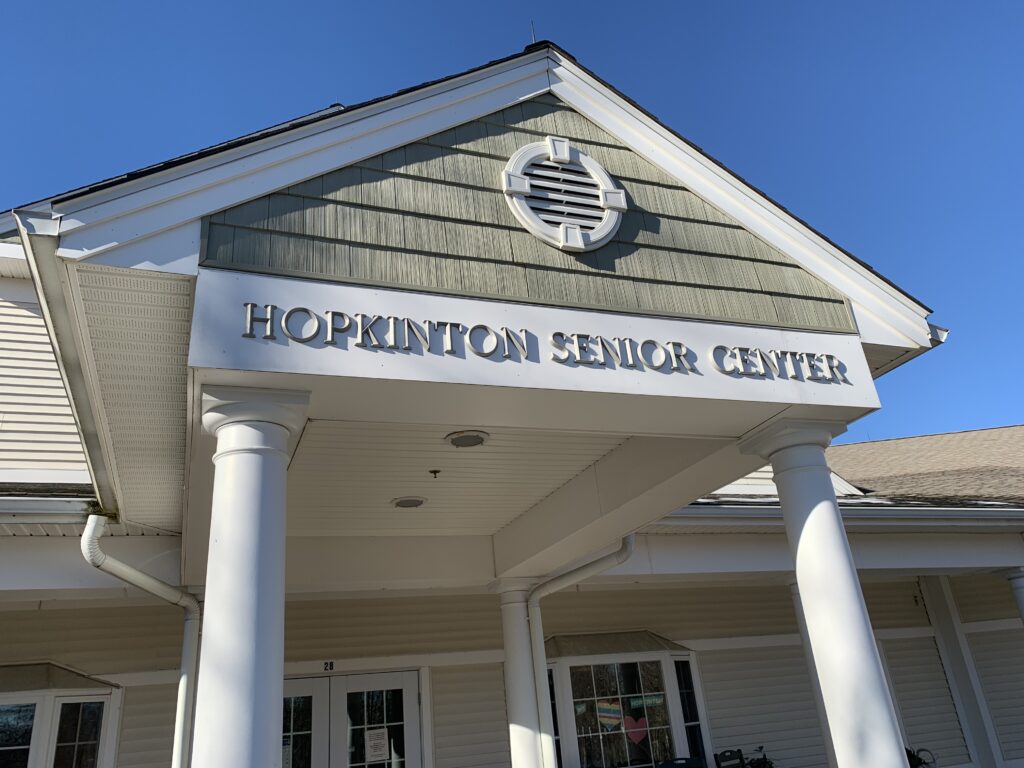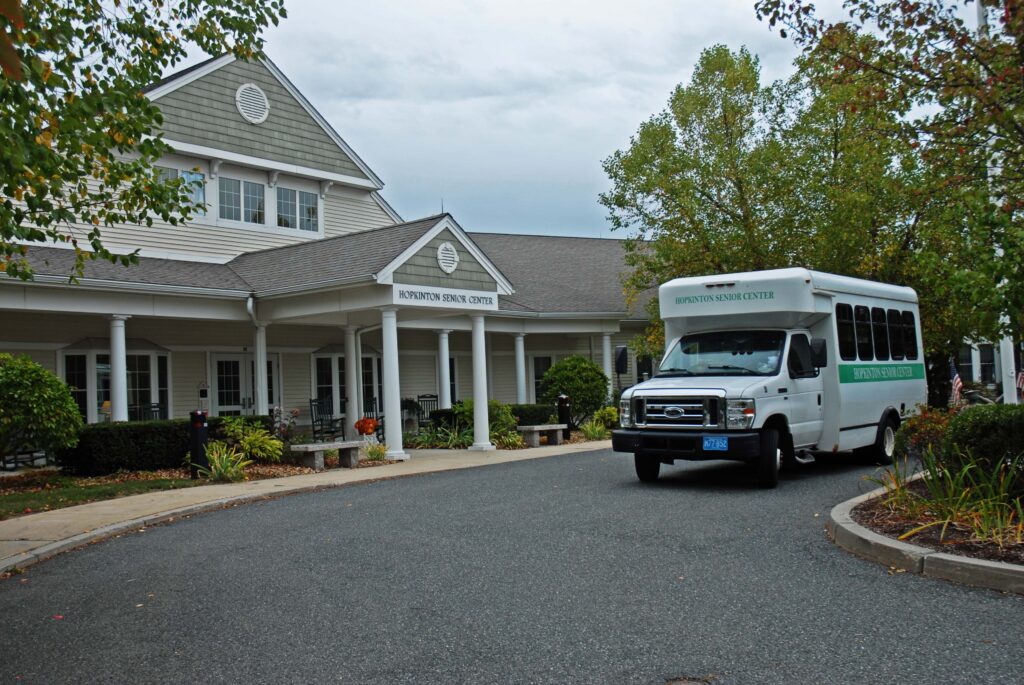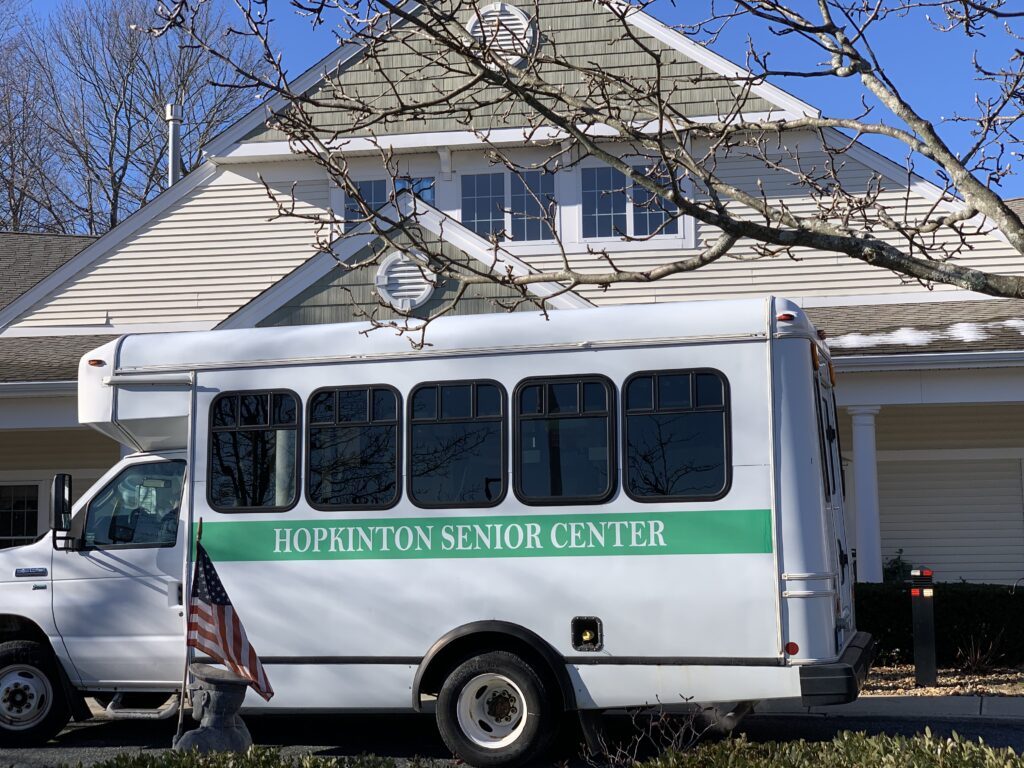The Hopkinton Senior Center on Sept. 18 hosted a presentation of a community needs assessment showing the concerns of older adults in Hopkinton that they fear will affect their ability to age in place in town.
This 107-page report was commissioned by the town more than a year ago. It was researched and written by a team of experts at the Center for Social & Demographic Research on Aging (CSDRA) within the Gerontology Institute at the University of Massachusetts Boston. The report incorporated the results of a local survey mailed to 5,000 older residents and input from focus groups. It also used data from the U.S. Census Bureau and the American Community Survey.
“I learned a great deal from it myself, and it has already provided us with ideas of how to improve and expand the lives of seniors in town,” wrote Amy Beck, the town’s director of senior services, in the report’s introduction.
Growing senior population has diverse needs
One key finding was that while the Senior Center received high marks for its programs and services, many older residents had misconceptions about its mission. They thought they were too young to use it, that it was private, or that it was only for elders in crisis. Some 55% of seniors visit the Senior Center only a few times a year.
The report also pointed out a need for different programming, such as outdoor and indoor exercise classes and lectures to engage younger seniors in their 60s and 70s. Other interests included wellness programs, trips and cultural events.
To enhance the Senior Center’s image, the assessment suggested a possible name change “that reframes aging as a positive and active experience.” Community outreach via traditional and social media was encouraged, particularly to underrepresented groups. Other tactics include more weekend and evening programming and “embedding” Senior Center personnel in community groups, but that would require more personnel.
Presenter Sue Berger worked on the survey and engaged with older residents in Hopkinton to research their thoughts on the positive aspects they experience and the obstacles they face. She noted that the population of baby boomers is now 65 years or older and will continue to grow. It also is more diverse and has different needs from preceding generations, as many people don’t consider themselves as being old.
By 2030, 27% of Hopkinton’s residents will be age 60 or older, according to the report.
Berger said the report is a tool for the town to create a Senior Services strategic plan. Some of the data could influence future development in town, as older residents expressed a need for smaller housing and the ability to age in place in their homes. It will be shared among town departments.
“A lot of the recommendations take a village,” said Berger. “Senior Services can’t do it alone.”
Housing, finances, transportation top list of concerns
Housing, limited income and lack of transportation were key concerns for Hopkinton’s older population. More than one-third of seniors surveyed have lived in Hopkinton for at least 35 years. They expressed how much they wanted to remain in town, but opportunities to downsize or afford repairs to their homes were obstacles.
Rising property taxes was a factor that may drive some residents to leave Hopkinton because they have fixed incomes. One respondent suggested that seniors become exempt from paying taxes that fund the schools.
People enjoy the town’s natural resources, including its parks and trails, as well as its small-town charm and access to services. The library and Senior Center were praised for being good resources.
One detractor was that the sense of its being a close-knit community is waning. As the town’s population has exploded, some respondents feared that the town’s infrastructure cannot not support more people.
Finding smaller houses and condos is a challenge, particularly if a senior wants a one-floor home due to mobility issues. Accessory dwelling units were mentioned as one way to address this concern. Subsidized housing units where Hopkinton residents were given priority was another.
Both homeowners and renters were found to spend at least 30% of their incomes on housing costs, with those with lower incomes paying more.
Of seniors aged 70-plus, 54% live alone. Berger stressed concerns about isolation and its affect on people’s mental health, a topic that arose during the pandemic. A total of 3% of respondents admitted that they have either thought of or attempted to commit suicide. Nearly a quarter of the respondents only get together in person once a month.
Along those lines, 22% of respondents felt excluded in town based on their age, disability or income. In focus groups, some residents said they didn’t believe the town cared about its older residents. An example illustrating this is that people needed to vote in person at Town Meeting, but many could not stay late in the evening for critical votes.
Transportation also impacts seniors, as many lose their ability to drive as they age. Survey respondents said they need a car to get around because the town is not walkable and does not have sidewalks in some areas.
An example Berger gave as a challenge is that 44% of respondents said they had to miss, cancel or reschedule a medical appointment over the past 12 months due to lack of transportation.
The MetroWest Regional Transit Authority does provide bus and paratransit services. The Senior Center has a van for transportation for medical appointments and for shopping.
Suggestions offered for improvement
Some survey respondents suggested better communication between seniors and town departments. When proposing new housing stock, developers should consider the desire for older residents to live in single-floor homes or homes with a primary bedroom on the first floor. Intergenerational connections were encouraged. Volunteers could help older residents with transportation and chores.
Said Berger: “There are definitely some items on this list and recommendations here where you might get big bang for your bucks without needing extra money and staff.”

















0 Comments